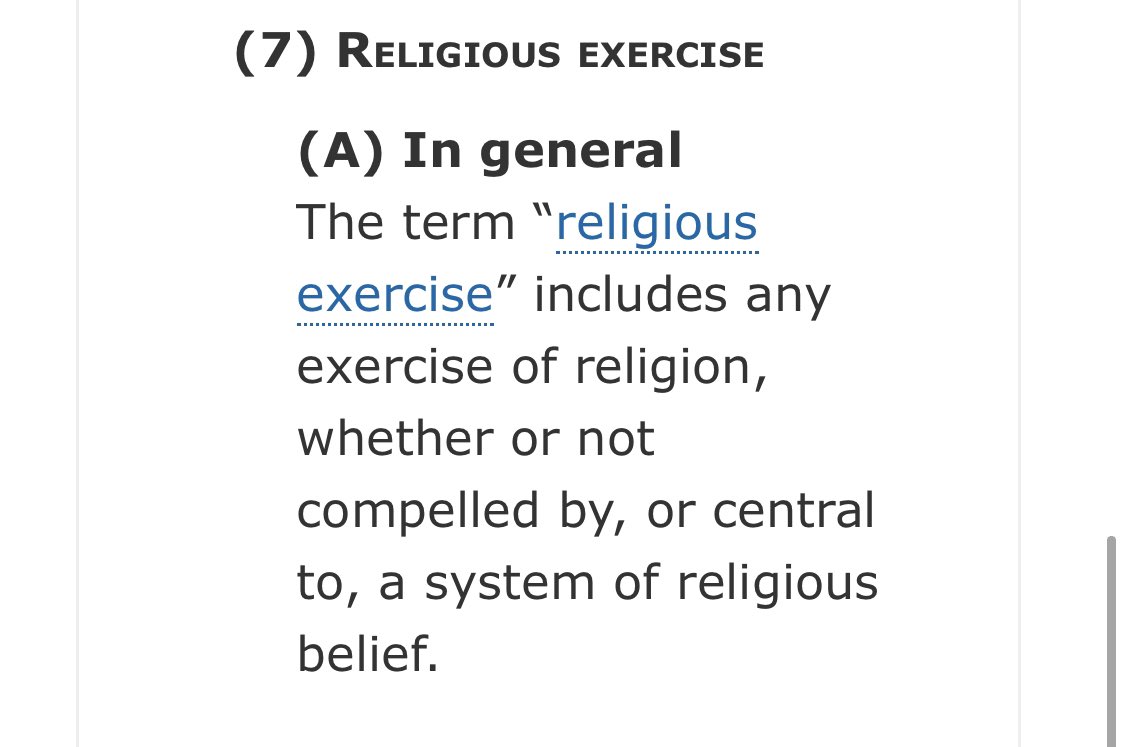
How to get URL link on X (Twitter) App


 The charge that liberal and progressive believers are insincere has moved from "tentative thoughts" to become the formal legal position of prominent religious conservatives, all in the span of about six months. /2
The charge that liberal and progressive believers are insincere has moved from "tentative thoughts" to become the formal legal position of prominent religious conservatives, all in the span of about six months. /2
https://twitter.com/starsandstripes/status/1598371347842928643This opinion continues the trend of conservative judges ignoring the harms, especially to those who are unvaccinated, of COVID-19. There is no mention of the number of deaths in the U.S. You could read the opinion and not know that 1.1 million people have died from COVID. /2
https://twitter.com/JYuter/status/1539947649637425152One answer is a matter of legal strategy. Under prevailing free exercise doctrine, if the gov’t grants any secular exceptions that undermine a law’s purpose, it has to grant religious exemptions that are comparable in terms of undermining that purpose. /2

https://twitter.com/joshmblackman/status/1538991339114749952The argument begins with the claim that free exercise rights are violated only when the state imposes a “substantial burden.” And that only happens when the state forces a believer to do something that conflicts with a religious obligation. /2

https://twitter.com/ProfLWiley/status/1448365181956931589What the Maine court gets right is that the medical and religious exceptions aren’t comparable. Here’s the central point: /2


 The court claims that Title VII preempts NY's mandate, which excludes a religious exemption, because Title VII requires a process of reasonable accommodation. But the court fails to account, or even cite, TWA v. Hardison, which is a significant error. /2
The court claims that Title VII preempts NY's mandate, which excludes a religious exemption, because Title VII requires a process of reasonable accommodation. But the court fails to account, or even cite, TWA v. Hardison, which is a significant error. /2

https://twitter.com/Rachael_e_Jones/status/1392146431499243520of interest to legal historians, church/state scholars, and those interested in @UVA history. The article gives a detailed account how the case was litigated at a critical moment in the development of Establishment Clause doctrine over the past several decades. /2

https://twitter.com/realDonaldTrump/status/1278097652677214209Here is some background on Alton Lemon, a civil rights activist and graduate of Morehouse College, from his 2013 obituary by @adamliptak /2